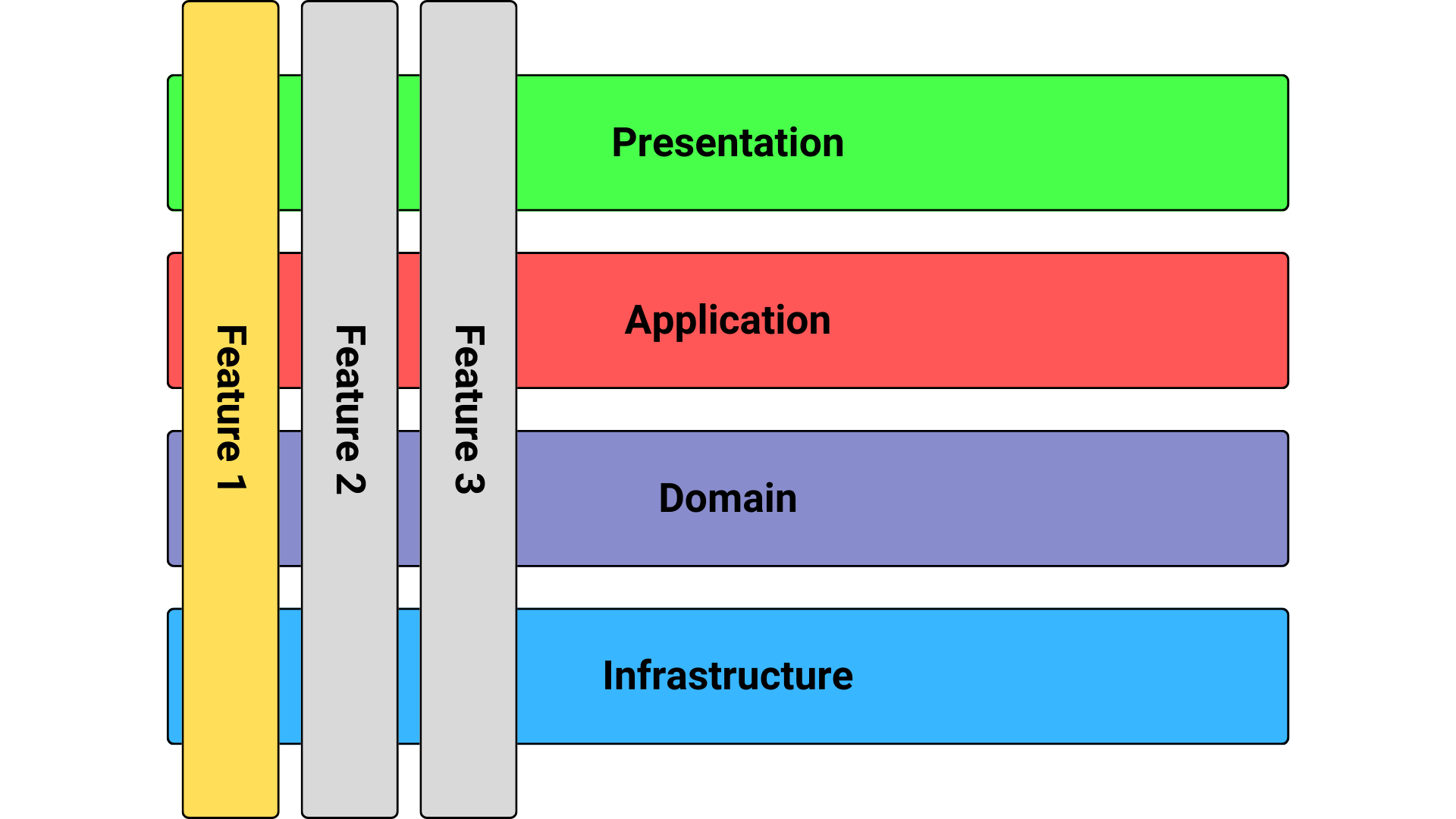Recently, I have been working on modifying a Vertical Slice Architecture template to enhance the maintainability and scalability of microservices. This project aims to design an architecture based on Azure ☁️ for reservation management, using Event-Driven Architecture 🔄 to efficiently handle events and ensure asynchronous communication between services.
This architecture will serve as the foundation upon which I will build the system.
Key Tools and Approaches
To achieve this goal, I have incorporated a combination of architectures and tools that have been fundamental in the process:
1. Domain-Driven Design (DDD) 🏗️
I restructured the application organization to clearly define domain boundaries and avoid unnecessary dependencies between modules. This has enabled greater clarity and modularity in the design.
2. Screaming Architecture 📢
By prioritizing the expressiveness of the code structure, the folder and namespace organization now directly reflects the business domain instead of being coupled to technical details.
3. .NET Aspire 🚀
I integrated Aspire for service orchestration, simplifying dependency management, configuration, and local deployment of microservices.
4. Event-Driven Architecture ⚡
I implemented an event-driven approach to improve scalability and decouple services, enabling better management of distributed transactions.
5. Migration Service 🗄️
I added a specific service to manage database schema evolution, ensuring migrations are applied automatically and in a controlled manner.
Benefits Achieved
This combination of approaches and tools has enabled:
-
Greater modularity and clarity in service development.
-
Improved long-term maintainability.
-
Simplified integration and deployment of services in both local and cloud environments, thanks to Aspire.
Next Steps
I will continue sharing progress and the challenges I encounter throughout the development of this system.
💬 What other strategies do you use to improve the architecture and maintenance of your microservices?
📌 You can follow the project’s development in my GitHub repository: GitHub repository
Thank you for reading! I hope this experience can serve as inspiration for your own projects!
